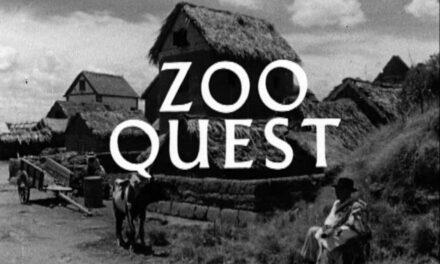“Lolita” is a 1962 film adaptation of Vladimir Nabokov’s controversial novel of the same name. Directed by Stanley Kubrick, this psychological drama falls into the genre of black comedy and was released at a time of heightened scrutiny regarding censorship and artistic expression.
Stanley Kubrick, known for his meticulous attention to detail and innovative filmmaking techniques, directed “Lolita”. The screenplay was adapted by Nabokov himself, ensuring the story’s fidelity to the original text. The film was produced by Seven Arts Productions and distributed by Metro-Goldwyn-Mayer (MGM).
The story revolves around Humbert Humbert, a middle-aged professor with a disturbing attraction to underage girls. When Humbert becomes obsessed with the precocious teenage girl Dolores “Lolita” Haze, he maneuvers himself into her life by marrying her inattentive mother, Charlotte Haze. The central conflict arises from Humbert’s internal struggle between his desire for Lolita and his guilt over his immoral actions. As the film progresses, their relationship becomes increasingly twisted, leading to a dramatic climax.
James Mason delivered a captivating performance as the tormented Humbert Humbert, while Sue Lyon portrayed the seductive and troubled Lolita with impressive maturity. Shelley Winters played Dolores’ naive and oblivious mother, and Peter Sellers appeared as the eccentric Clare Quilty, a rival for Lolita’s affections.
Upon its release, “Lolita” garnered mixed reviews from critics and generated significant controversy due to its sensitive subject matter. Some praised Kubrick’s direction and the performances of the ensemble cast, while others criticized the film for its daring portrayal of a taboo relationship. Despite the controversy, “Lolita” achieved moderate box office success, particularly in art-house cinemas and avant-garde circles, where audiences appreciated Kubrick’s artistic vision.
One notable achievement of “Lolita” was its impact on popular culture and its influence on subsequent films exploring similar themes. The movie pushed the boundaries of censorship and challenged societal norms, paving the way for other filmmakers to tackle similar taboo subjects. It also solidified Stanley Kubrick’s reputation as a daring and innovative director.
Despite its controversial nature, “Lolita” found a place in the cinematic canon and continues to be analyzed and debated by scholars. The film’s legacy led to a remake in 1997, directed by Adrian Lyne and starring Jeremy Irons as Humbert Humbert. Although both versions provide unique interpretations, Kubrick’s adaptation remains the more widely recognized and critically acclaimed.
In conclusion, “Lolita” is a thought-provoking and controversial film that explores the darkest corners of human desire. Through its stunning cinematography, exceptional performances, and uncompromising exploration of taboo themes, the movie serves as a testament to Stanley Kubrick’s audacious filmmaking and ability to provoke audiences. Despite the initial controversy surrounding its release, “Lolita” has left a lasting impact on cinema and continues to be studied and admired for its artistic merits.













